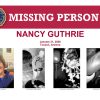There is something about a broad Northern Irish accent that would provoke the most flippant remark. The moment those vowels flatten and deepen, the friendly chatter suddenly takes the form of a death threat.
I say this as a Catholic, born and raised in County Tyrone, who went to university «across the world.» water,” weighted down with pronunciations like “Hoi-noi-broin-koi,” which made me barely legible abroad. My speech pattern may have softened over time, but my ear for authenticity remains sharp. And so when the opening credits rolled for Blue Lights, the new Belfast cop drama on BBC1, I was ready to respond.
Instead, I breathed a sigh of relief. «Blue Lights» was truly breathtaking — the thoughtful characterization was immediately eye-catching, and when it came to the accents, the home-grown lead singers had what another Northern Irishman, Liam Neeson, would call a «very specific skill set.»
< p>Admittedly, Sian Brooke, who plays Grace Ellis, a 40-year-old former social worker-turned-recruit, isn't Northern Irish, but that's great because she's not pretending. Plus, she's from Staffordshire, so far less annoying than she could be, and most importantly, she's great, bringing humor and soul to her role and to the show. I really hope she doesn't get shot.
Blue Lights was created by the Northern Irish creators of Salisbury Poisoning and Undeclared War. It's no surprise then that it rings true. It was an inspired decision to choose Northern Ireland as the location for this ensemble, given the challenges facing the three trainees from very different hinterland areas. The nature of policing, even now, 25 years after the Good Friday Agreement, remains peculiar: it is an imperfect world in which the police still have to check under their vehicles for explosive devices before each shift.
 Sian Brooke as PSNI Officer Grace Ellis in Blue Lights. Photo: BBC
Sian Brooke as PSNI Officer Grace Ellis in Blue Lights. Photo: BBC
Meanwhile, the legacy of the Troubles, the ongoing sectarianism, the arms market, now augmented and supplanted by the drug trade, provide a unique backdrop. Early in the series, resentment erupts among the local «cleaners» at the mainland's security forces, who pounce on covert operations and suddenly declare vast swaths of the city inaccessible to rank-and-file officers.
This infuriates front-line cop Jerry, an old-timer played by Richard Dormer with furious pleasure. He protests against a situation where, despite the fact that the Police Service of Northern Ireland (PSNI) is allegedly on the same side as MI5, policing is impossible.
Interestingly, my husband was very indignant (on my behalf) when he watched the first few episodes, on the grounds that all the villains appear to be Catholic. I was less concerned because it was so well done and, in some cases, the details were frighteningly accurate, such as Annie, a Catholic probationer, who had to make a hasty move because word got out that she had joined the police. Similarly, a 15-year-old's horrifying kneecap is not a figment of the imagination or a throwback to the 1970s. “I always want to deal with the truth, and sometimes the truth is hard,” said show co-creator Declan Lone. «I think drama should be as bold and unwavering as possible.»
 Gordie Mackle (Dane White O'Hara) falls into the wrong crowd at Blue Lights. Photo: Steffan Hill.
Gordie Mackle (Dane White O'Hara) falls into the wrong crowd at Blue Lights. Photo: Steffan Hill.
One of the subplots centers on Tommy (Nathan Braniff), who initially fails a firearms test and is in danger of being returned to the civilian street. Again, it seems genuine: such is the danger they face, no trainee can set foot in the precinct without completing the initial and intensive 10-day firearms training program at the Police College of Northern Ireland. All 7,000 PSNI employees are armed with pistols, which they bring home and can also carry with them in their spare time. It's far from Bill.
In many cop television series, the relationship between the police and known criminals is portrayed as a battle of wits between cats and mice. But in Belfast's version of Blue Lights, it is paramilitaries who are the main experts in the field of law. They are so well versed in the intricacies of human rights law that a bewildered newcomer who confuses every detail will immediately find himself embroiled in self-righteous protests against wrongful arrest.
Police work in Northern Ireland remains a high-stakes game with potentially deadly consequences. Dormer admitted that he and his peers were deeply shaken by growing up during the Troubles when they heard the bombs go off. “Many people of my generation actually suffer from – and I say this for a reason – post-traumatic stress disorder,” he said. “Because we constantly lived on nerves and got used to it.”

After misreading a news story about a police officer on duty who was shot through the front door and thinking it happened with a neighbor, I grew up convinced that I would be shot through my own front door. So I got on my knees and pretended to be a cat for years, from time to time. Even now, I scream excessively at loud noises, fears of jumping, backfires from machines.
Inevitably, viewers from Northern Ireland will view Blue Lights through a very different lens than viewers from other countries. But for this Northern Irishman, it not only rings true as edge-of-your-seat drama, but also serves to draw attention to the long overdue fragility of a world still in the making.
Blue Lights is now available on BBC iPlayer
























































Свежие комментарии